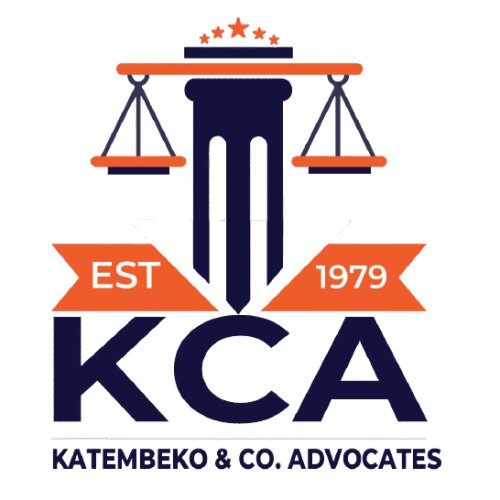Best Agriculture Lawyers in Uganda
Share your needs with us, get contacted by law firms.
Free. Takes 2 min.
Or refine your search by selecting a city:
List of the best lawyers in Uganda
About Agriculture Law in Uganda
Agriculture is a cornerstone of Uganda's economy, contributing significantly to the country's GDP and employing a large portion of the population. Uganda’s agricultural sector is diverse, including the cultivation of crops such as coffee, tea, cotton, tobacco, maize, beans, bananas, and cassava, alongside livestock farming. The legal framework governing agriculture involves multiple aspects, including land ownership, environmental regulations, standards for agricultural products, and trade policies.
Why You May Need a Lawyer
Legal assistance in agriculture may be required in various scenarios. For instance, individuals may encounter disputes over land ownership or require guidance on agricultural property leasing. Farmers and agribusinesses may need help navigating complex regulatory requirements or resolving contract disputes with suppliers or buyers. Additionally, issues such as intellectual property rights related to new plant varieties or compliance with export regulations can necessitate legal expertise.
Local Laws Overview
Ugandan agriculture is governed by laws including the Land Act, 1998, which addresses land ownership and use; the National Environment Act, 2019, focusing on safeguarding the environment through sustainable farming practices; and policies like the Agricultural Chemicals (Control) Act, 2006, which regulates the use of pesticides and fertilizers. Understanding these legislation and policies is crucial for anyone involved in the agricultural sector to ensure compliance and sustainable practices.
Frequently Asked Questions
How can I acquire agricultural land in Uganda?
Land acquisition involves understanding the types of land tenure systems, including customary, freehold, and leasehold. Navigating these requires due diligence and often legal assistance to ensure legitimate ownership.
What are the legal requirements for starting an agribusiness?
Starting an agribusiness involves registration with the Uganda Registration Services Bureau, obtaining necessary licenses, and complying with sector-specific regulations such as those on quality standards and environmental safety.
How do I resolve a land dispute?
Land disputes can be resolved through mediation, arbitration, or court proceedings. Consulting a lawyer familiar with land laws and customs is often necessary to navigate these disputes effectively.
What regulations apply to the use of agricultural chemicals?
The use of fertilizers and pesticides is regulated under the Agricultural Chemicals (Control) Act to ensure safety and environmental protection, requiring proper licensing and adherence to usage guidelines.
Are there any intellectual property rights applicable to agriculture?
Yes, the Plant Variety Protection Act provides a framework for protecting new plant varieties, rewarding innovation, and ensuring breeders’ rights in agriculture.
How can I access financing for my agricultural project?
Several governmental and non-governmental organizations offer financial support through grants and loans. Legal assistance may help in drafting proposals and ensuring compliance with funding requirements.
How do trade policies affect agriculture in Uganda?
Trade policies, including tariffs and export restrictions, can impact the profitability of agricultural enterprises; understanding these policies helps in planning and compliance.
What are the environmental regulations for agriculture?
The National Environment Management Authority oversees compliance with environmental laws that affect agriculture, focusing on sustainable practices to minimize ecological impact.
How do I register a co-operative society?
Co-operative societies must be registered under the Cooperative Societies Act, 1991, requiring drafting of a constitution, fulfilling membership criteria, and adhering to regulatory requirements.
What is the role of local governments in agriculture?
Local governments are responsible for implementing national policies, extension services, and local regulations that influence agricultural operations, making coordination at this level essential.
Additional Resources
For more information or assistance, you may contact organizations like the Ministry of Agriculture, Animal Industries and Fisheries, the Uganda National Farmers Federation, or local branches of international agencies such as the FAO. These bodies offer resources, support, and information relevant to the agricultural sector.
Next Steps
If you require legal assistance in the field of agriculture, consider reaching out to a licensed legal practitioner in Uganda specializing in agriculture law. It is important to gather all relevant documentation and outline your legal concerns clearly. Engaging with local legal aid services or professional legal associations can also provide guidance and connect you with experienced lawyers who can assist you in addressing your agricultural legal needs.
Lawzana helps you find the best lawyers and law firms in Uganda through a curated and pre-screened list of qualified legal professionals. Our platform offers rankings and detailed profiles of attorneys and law firms, allowing you to compare based on practice areas, including Agriculture, experience, and client feedback.
Each profile includes a description of the firm's areas of practice, client reviews, team members and partners, year of establishment, spoken languages, office locations, contact information, social media presence, and any published articles or resources. Most firms on our platform speak English and are experienced in both local and international legal matters.
Get a quote from top-rated law firms in Uganda — quickly, securely, and without unnecessary hassle.
Disclaimer:
The information provided on this page is for general informational purposes only and does not constitute legal advice. While we strive to ensure the accuracy and relevance of the content, legal information may change over time, and interpretations of the law can vary. You should always consult with a qualified legal professional for advice specific to your situation.
We disclaim all liability for actions taken or not taken based on the content of this page. If you believe any information is incorrect or outdated, please contact us, and we will review and update it where appropriate.
Browse agriculture law firms by city in Uganda
Refine your search by selecting a city.














